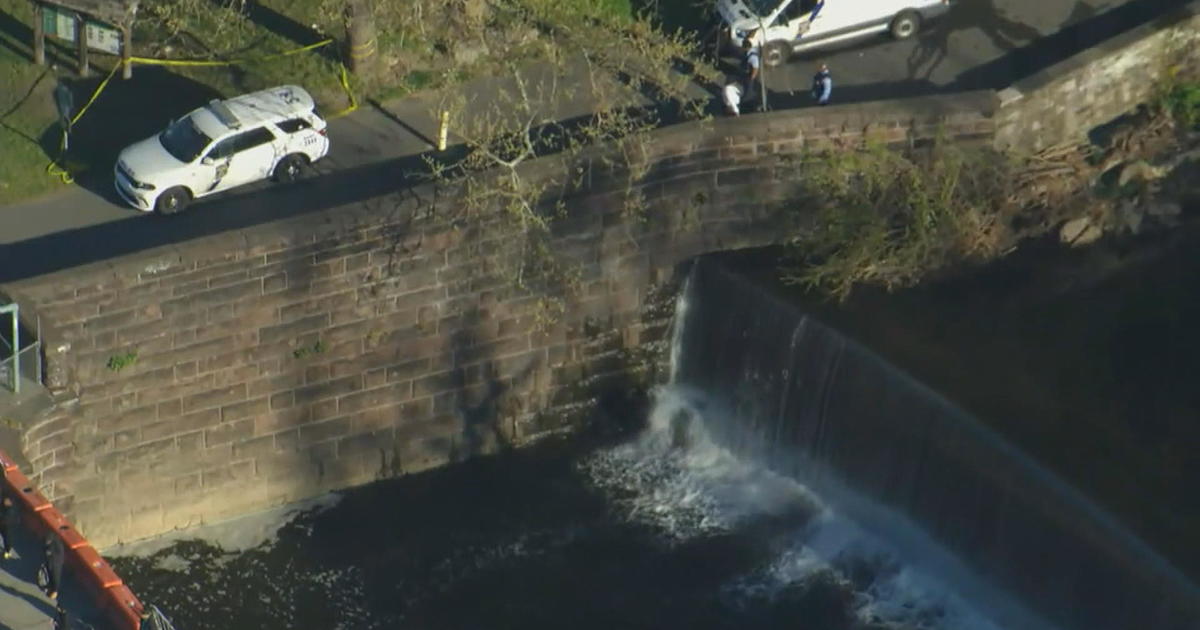Area Residents Urged To Make Preparations For Sandy
PHILADELPHIA (CBS) – Residents are being urged to take precautions and make preparations as Sandy continues to be a very real threat to the area.
Recommendations for storm prep include securing loose items on your property like trash cans, children's toys and lawn furniture; clearing drains and gutters of leaves and debris; clearing shrubs and branches from your property; preparing an evacuation route; and stocking up on enough food and water for three days. Residents are also encouraged to monitor the storm closely and keep an eye on water levels if they're living near a lake, pond or other body of water. Any doors and windows that have loose or broken hinges should be secured.
While people are urged to stay off the roads in the event that the storm hits, AAA shared some important tips if you must drive or travel. Rain, wind, and wet leaves will reduce traction and visibility, so you should stay safe by driving below the posted speed limit and increasing your following distance. Residents should also remember that, by law in Pennsylvania, your headlights must be on when your wipers are on.
Those planning to travel to, or through, South Florida and the Caribbean in the near future should be sure to check with their travel agent, airline or cruise provider. Some flights and cruise itineraries have been cancelled or changed. AAA also recommends buying travel insurance.
Meanwhile, at home, check your insurance policy, because standard home insurance policies do not have flood coverage. This is true of many commercial property insurance policies as well. A separate flood policy is needed to have flood coverage.
People living along the coast are urged to take similar precautions. Boatowners are being strongly encouraged to secure their boats. All residents at the shore should be prepared to evacuate.
If you have pets, the Humane Society recommends doing the following:
-Put a collar with visible identification on your pets, including indoor-only pets
-Keep pictures of your pets on hand for identification purposes. Ideally, you should also be in the photo
-Create a pet emergency kit (see below) and refresh the items every few months
-Talk to your neighbors about how they can help your pets if you are not at home when disaster strikes
-Create a list of hotels that allow pets
-Plan on evacuating about 100 miles inland
This emergency supply kit should include:
-Three-or-more-day supply of food in airtight, waterproof container, and drinking water
-Bowls for food and water
-Current photos and physical description of your pets, including details on markings
-Medications, vaccination records and pet first aid supplies
-Comfort items such as a toy and blanket
-Small garbage bags
For dogs include: leash, harness and a sturdy carrier large enough to use as a sleeping area
For cats include: litter and litter box and a sturdy carrier large enough for transport
Pet owners should be aware that many evacuation shelters do not accept pets, and they must plan their destination in advance. Hotels and motels may be willing to lift "no pet" restriction in an emergency. Friends and family members living outside the area may be able to provide shelter too. Please check with your local animal shelter or emergency management office to determine if a pet friendly emergency shelter will be set up in your location. Pet owners should remember that having your pet microchipped dramatically increases the chances of reunion if that pet becomes lost
Here are some other useful storm prep tips:
-Make sure flashlights (one per person), extra batteries and bulbs and battery operated lanterns. During periods of extended power outages, solar-powered landscape lights can be brought indoors at night to provide light, then placed back outside in daylight to re-charge.
-If the home has cordless phones, remember, they will not work if the electricity is off, so you should have a standby telephone - either a cell phone or a telephone with a cord that can be plugged in. A cell phone car charger can be used if power to the home is out for an extended period of time.
-Also, a portable radio and extra batteries are extremely important. A battery operated NOAA weather radio is also recommended.
-Include a first aid kit in your emergency supplies. The kit should at least contain bandages, aspirin or other pain relievers, gauze pads, first aid ointment, elastic bandage and tweezers.
-Have plenty of infant supplies on hand, including food, canned milk or formula, disposable diapers and other necessities.
-Stock up on food that does not require refrigeration or cooking, such as canned meats, vegetables, fruits, juices, dry cereals and powdered milk. Store enough supplies to last for at least three days. This means you should also have a manual can opener.
-Have food and water for pets and records of shots and medication.
-Make sure to have a supply of water, for both drinking and for sanitation purposes. Store water in plastic jugs or covered containers. Have one gallon per day per person of drinking water for those in your household. A pre-filled bathtub can provide water to refill toilet tanks.
-Check your prescription medications. If supplies are low, get refills before the storm arrives.
-Check the number of hours it could take you to evacuate to a safe area during peak evacuation traffic. Have emergency contact phone numbers for family and friends; exchange these numbers with those on your contact list. Social media (Facebook, Twitter, etc.) can be used to let many people know you have reached your destination safety.
-If evacuating to a shelter, gather supplies that should be taken along. Take sleeping bags, blankets, pillows, personal toiletry items, and medications. If going to a shelter with children, remember to take along games, books and other items to occupy them. Baby supplies - diapers, wipes, baby food and other supplies should also be taken to a shelter. Consider in advance what will be done with pets in the event of an evacuation.
-If you or someone you know uses life-support equipment that requires electricity to operate, identify a location with emergency power capabilities and make plans to go there during a prolonged outage.
-Fill your gas tank so you can run your automobile to charge mobile devices. Be sure to open garage doors using manual controls to run the vehicle safely.
-If you need to use a portable generator, follow the manufacturer's instructions and use only when necessary. Don't overload it and turn it off at night while you sleep and when you are away from home.
-Stay away from downed wires. Assume any downed wire is energized.
Stay with CBSPhilly.com as we continue to bring you the most up-to-date information on Sandy.



